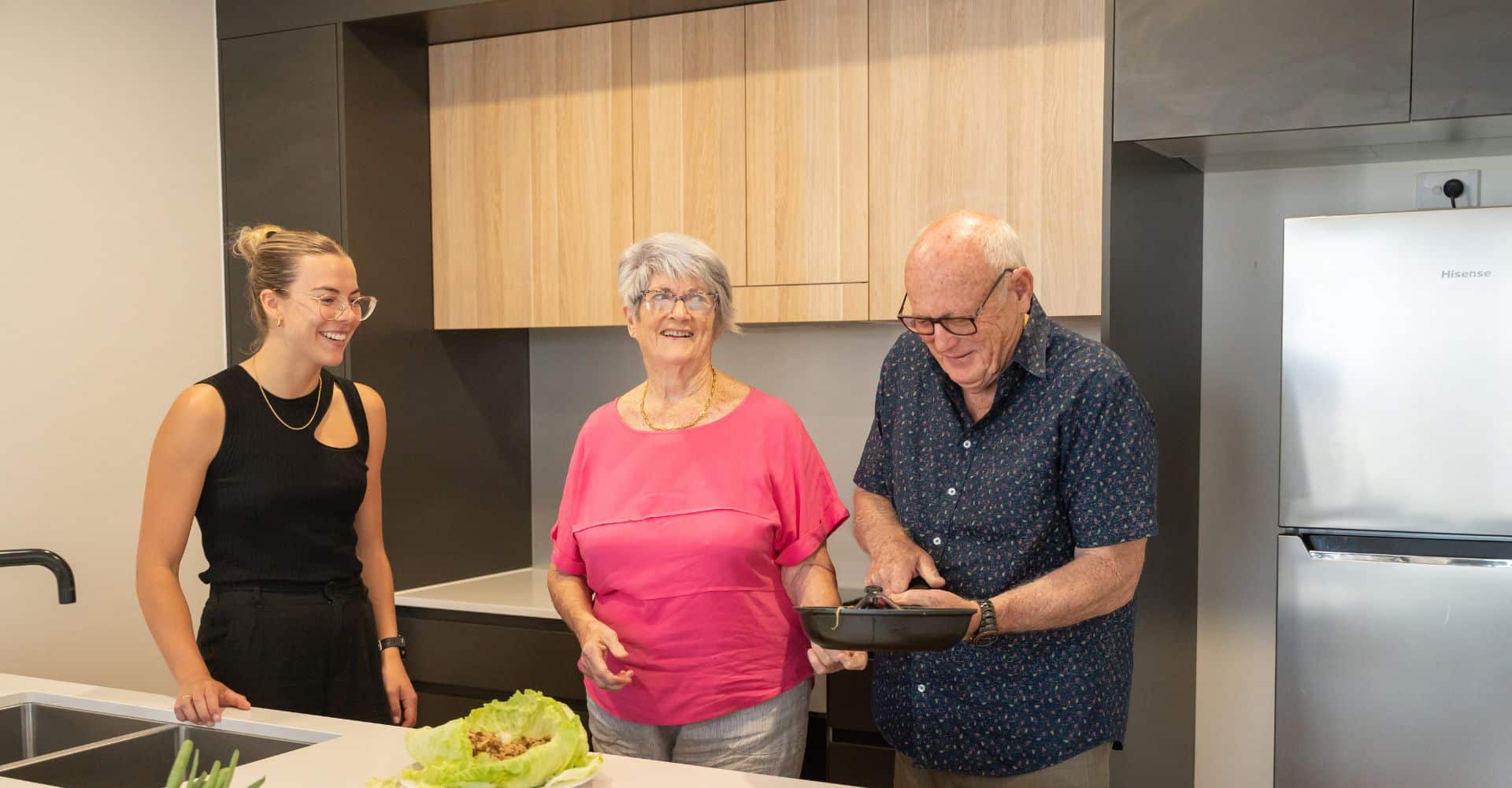The 5 most Common Nutritional Challenges in Aged Care and How Dietitians Address Them
Older adults often face unique nutritional challenges that can make it difficult to meet their dietary needs. These challenges are common in aged care, but with the right strategies, dietitians can help address them effectively. Below are the 5 most common nutritional challenges in aged care and how dietitians step in to provide solutions.
- Malnutrition
Malnutrition is a significant concern in aged care. Many older adults don’t consume enough nutrients due to reduced appetite, difficulty eating, or limited access to a varied diet. Dietitians may recommend high-protein, high-energy foods to ensure older adults receive the nutrition they need, even with smaller portions. Energy and protein are essential for fueling the body and preventing muscle loss, which helps prevent injuries, falls, cognitive decline, reduces mortality risk, and enhances overall well-being.
- Dehydration:
Dehydration is common in older adults, partly due to a reduced sense of thirst and medication use. This lack of adequate fluid intake can worsen existing health conditions, such as urinary tract infections or kidney problems. To combat dehydration, dietitians suggest easily accessible, hydrating foods such as soups, fruit, and hydrating drinks like milk, tea, coffee, or flavoured water.
- Dysphagia (Difficulty Swallowing):
Dysphagia is particularly common in elderly individuals with neurological conditions, making eating and drinking difficult. This can lead to both malnutrition and dehydration. Dietitians work with speech pathologists to assess the severity of dysphagia and modify food textures and liquid consistencies to ensure safe swallowing. Dietitians work with those affected by dysphagia to find nutrient-dense, easy-to-swallow foods and/or thickened liquids that are enjoyable for the elderly person, to minimise the risk of choking or aspiration pneumonia (food or fluid in the lungs causing infection) where desired, while maximising nutrition.
- Cognitive Impairment:
Conditions like dementia can affect the ability to eat independently, recognize hunger, or remember to eat, leading to poor nutritional intake. This often results in unintentional weight loss and malnutrition. Conversely, some individuals with cognitive impairment may forget that they have already eaten and overeat, which can contribute to weight gain and related health issues. Dietitians collaborate with caregivers to create routines and meal environments that support healthy eating behaviors. They may recommend finger foods for easier consumption, timed reminders for regular meals, or portion control strategies to prevent overeating, helping those with cognitive decline maintain adequate nutrition and a balanced intake.
- Social Isolation:
Eating is often a social activity, and older adults who experience social isolation may lose the desire to eat, leading to poor nutrition. Dietitians recognise the importance of mealtime companionship and often suggest communal dining setups in aged care facilities to make mealtimes more engaging. They also encourage families and caregivers to create social mealtime experiences to help stimulate appetite.
Addressing the nutritional challenges faced by older adults in aged care is essential to enhancing their quality of life. Dietitians play a crucial role in assessing individual needs and developing personalised strategies that ensure optimal nutrition and improved health outcomes.







